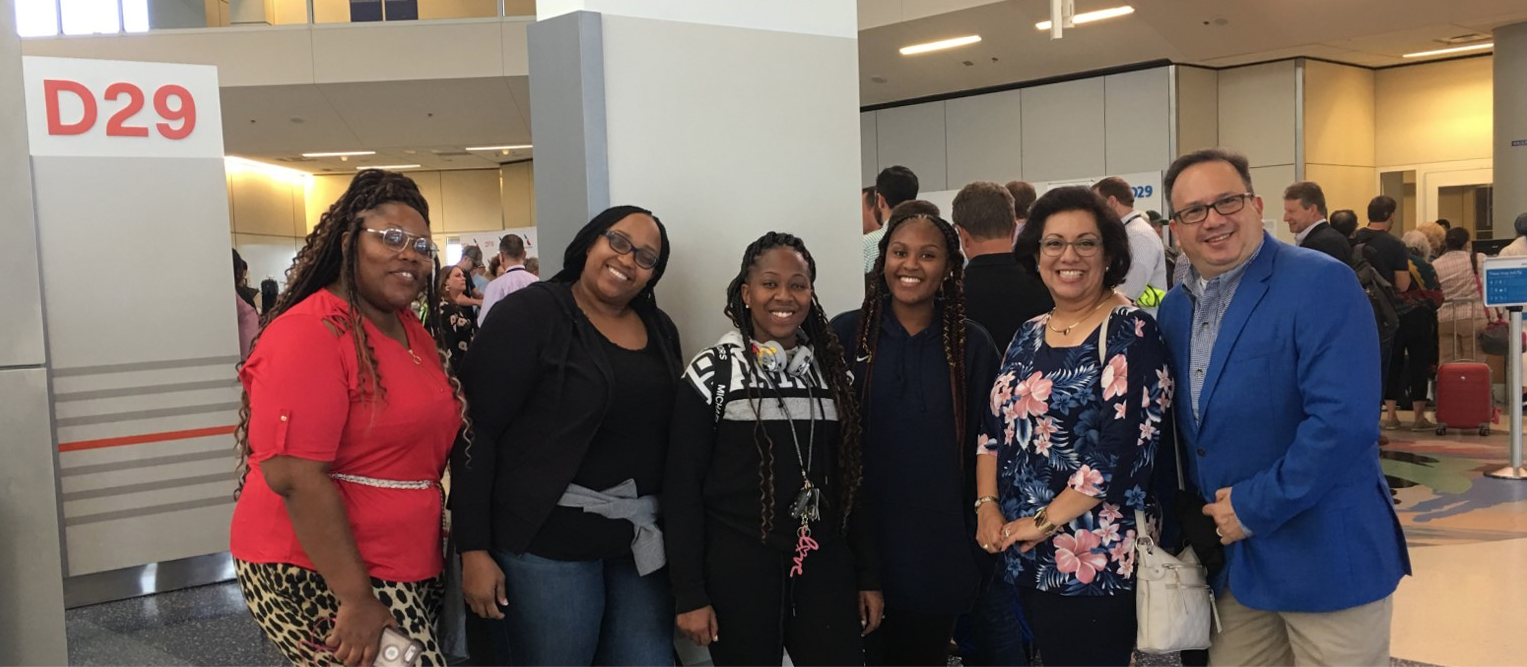
![]()
[hr]Five JSU students in the School of Public Health (SPH) spent two weeks in Spain to learn why the European nation is considered the healthiest on the planet, and one reason is that all businesses shut down in the middle of each workday for a two-hour siesta to allow employees to go home to relax.
This was quite a shock to Jessica D. James, a Jackson State University graduate student in the master of public health program. She was among participants in the pilot program.
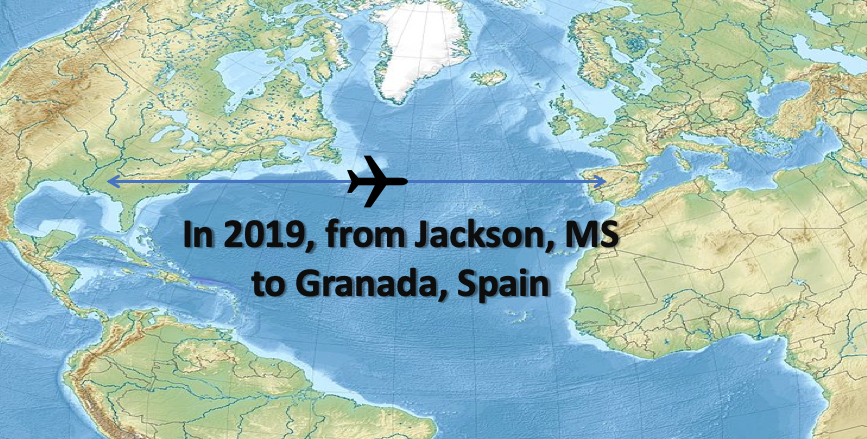 The routine siesta, however, was strange in a good way for her. “It was crazy because we would try to go grab lunch from somewhere, and we were wondering why everything was closing up. People would say, ‘This is siesta time.’ I was like ‘this is real.’ ”
The routine siesta, however, was strange in a good way for her. “It was crazy because we would try to go grab lunch from somewhere, and we were wondering why everything was closing up. People would say, ‘This is siesta time.’ I was like ‘this is real.’ ”
[dropcap]J[/dropcap]AMES especially noted that no one can abuse siesta by shopping or performing personal errands because, with everything closed, it forces people to “use your time wisely.” She said, “There’s no rat race here.”
James and four other students were accompanied by Dr. Nelson Atehortua, an assistant professor in the Department of Behavioral and Environmental Health. He arranged the trip with the help of JSU Global, an initiative devoted to internationalizing Mississippi’s only urban university. It helps immerse students into diverse cultures.
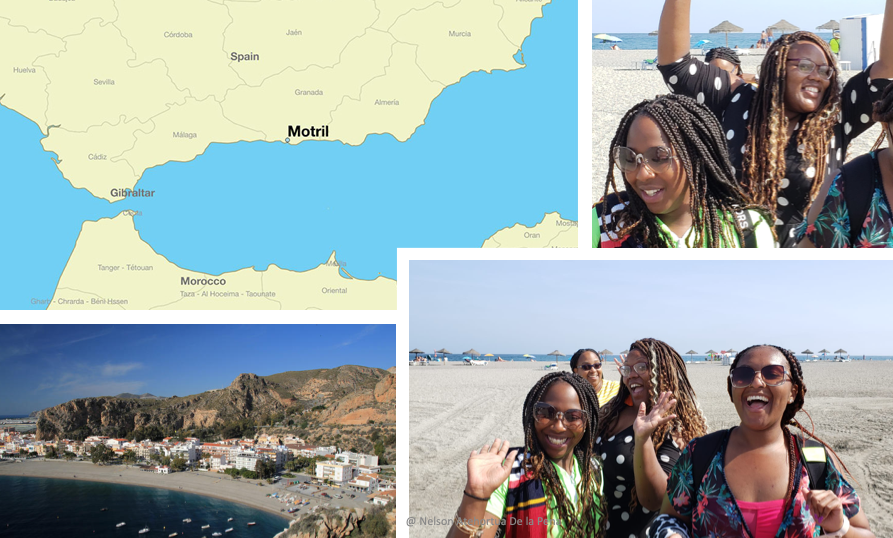
Atehortua, a native of Colombia, South America, is a two-year SPH assistant professor. He attributes Spain’s successes to its well-operated free universal health care system.
“Spain is, in fact, the healthiest country in the world. The pace at which it has added years of life expectancy – if it continues – will be the longest for all men and women in the world and will surpass Japan. Credit its culture and way of life,” Atehortua said. “Even crime is very low. There’s no sense of insecurity or threat.”
To illustrate safety, he said, “We had a chance to go hiking; no bother; visit the city, no bother; use metro, no bother; no xenophia. People were friendly to all Americans.”
Atehortua organized the trip so that Mississippi students could compare the Magnolia state to Spain’s health system. While abroad, they visited the U.S. embassy and the U.S. officer in charge of health.
“When you check all indicators of health, Mississippi ranks the lowest in 95 percent of them.” Also, while in Spain, they visited primary care clinics, a regional hospital and a high-tech hospital. As well, JSU students witnessed a live procedure performed by the chief of a cardiovascular center and surgeons, who described every detail.
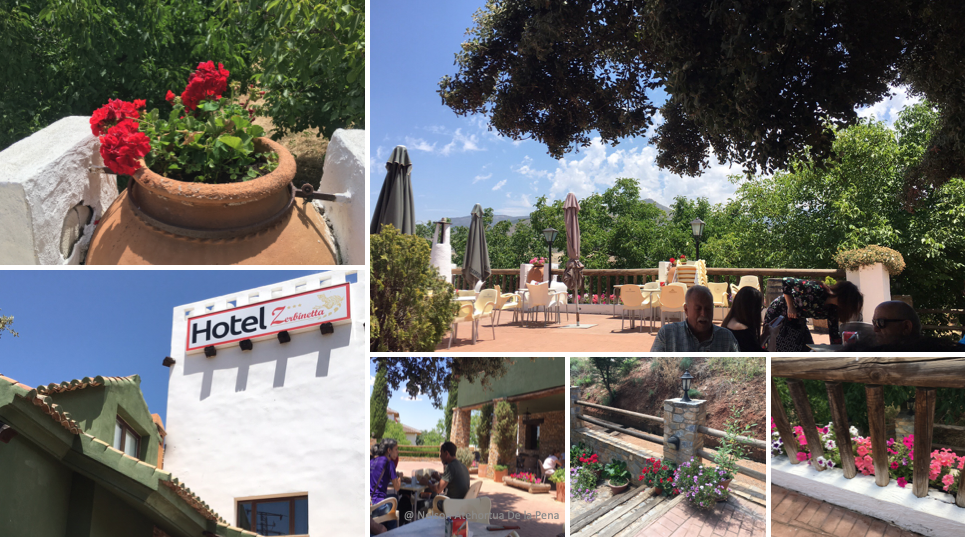
Atehortua noted that Spain shares the Mediterranean diet with other countries such as Greece and Italy. He said their foods are traditional and organic and that the people consume a lot of olive oil, vegetables and fruit. He and the JSU group ate a lot of salads and seafood. Natives do eat pork and poultry, too, but they generally steer clear of processed foods.
[dropcap]T[/dropcap]O be clear, there are plenty of fast-food places, but they don’t serve “trash” food, Atehortua said. “You’re not eating chemicals. The burgers in local restaurants don’t look like a McDonald’s burger. They’re prepared completely different.” He also raved about Spain’s good, inexpensive wine but said, “They don’t drink a lot of wine in a single serving. They do one or two cups while eating. This is good because it helps preserve cardiovascular health.”
Like James, Atehortua also sees the advantages of routine siestas. “The people there may have longer working hours, but they have a break in the middle of the day.” He said the rest helps relieve tension because mental health is important to Spain. “They know how to pause and take deep breaths.”
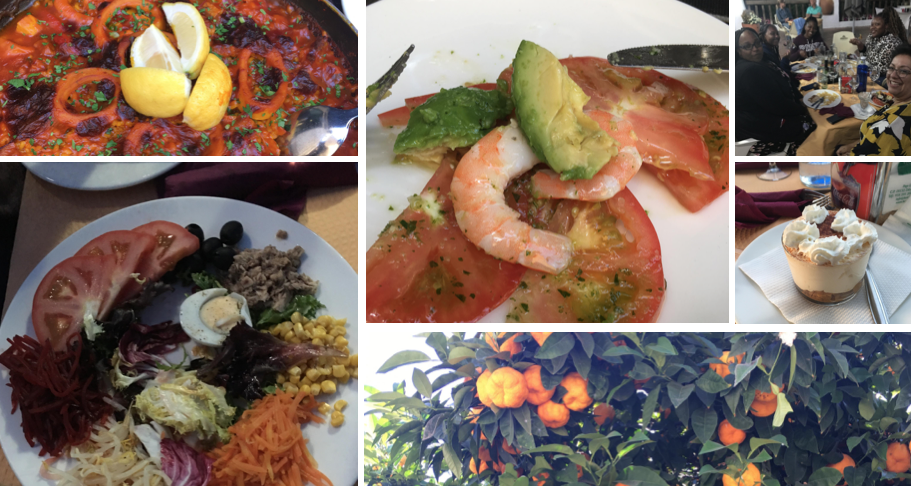
Another benefit to living in Spain is that its universal coverage is very organized, and “its health system places strong emphasis on disease prevention and health promotion,” Atehortua said. “Whenever you need health care service it is available within 15-20 minutes.”
He said health care providers habitually track and monitor patients for appointments and periodic checkups with medical doctors, nurses, dentists, etc. “And, if you can’t get to the emergency room yourself, they will send an ambulance.” This includes transportation to and from rural areas, too. “They will get to you,” Atehortua said.
Because of Spain’s commitment to its people, “they trust public health and the health care system. Universal coverage is for everyone and provides preventive and therapeutic services, even for immigrants.”
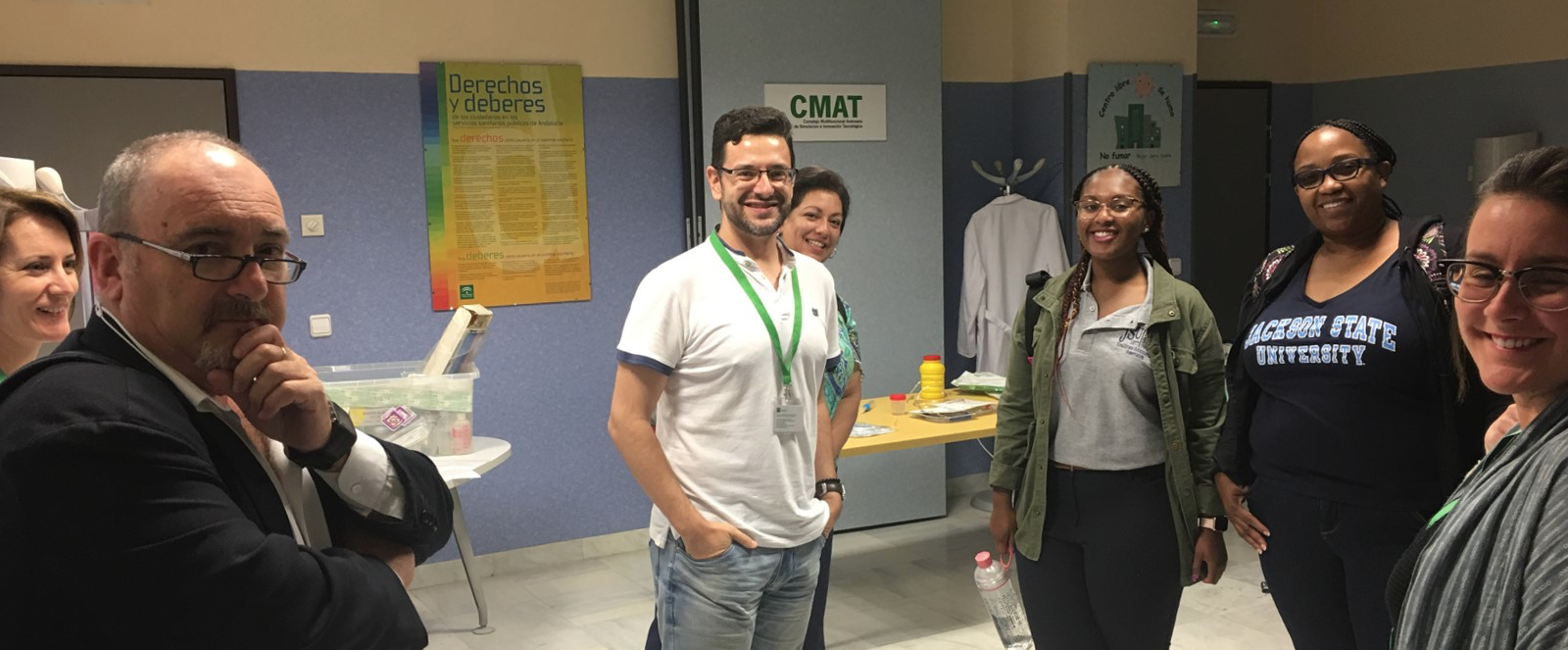
In fact, when JSU student James joking inquired about wanting a tummy tuck, she was told by a Spanish doctor that once she submitted the proper paperwork it could be performed free of charge. “It was so funny. I was just amazed,” James said.
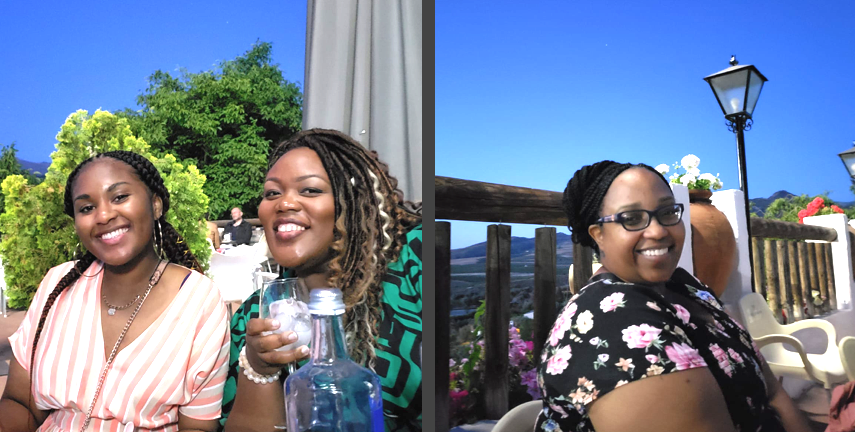
“Health in Spain is more affordable. They take health far more seriously, and they’re not so demanding with everyday life tasks,” James explained.
The trip to Spain was James’ fourth international excursion and her second through JSU Global. She definitely could see herself living in Spain, she said.
“It was very spiritual” because of the large number of olive and palm trees. For her, it symbolized the presence of Jesus. Also, she said the structures and lands evoked feelings of peace and of a period that predated Christ.
“Everything was nice and clean – even the water flowing out of pipes and the ground. People would say, ‘You can get a glass and drink that.’ The air was fresh. The pork was clean because the animals don’t eat slop; they eat acorns.”
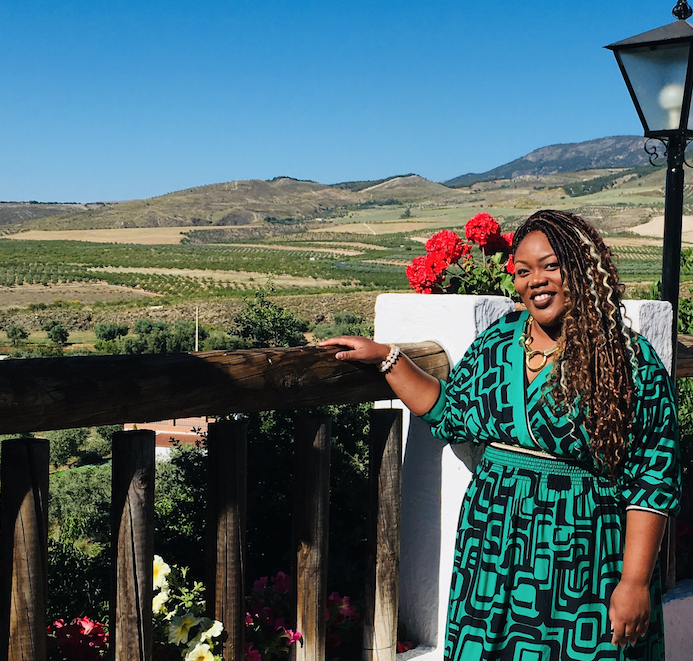
[dropcap]I[/dropcap]NCIDENTALLY, James said the JSU group ate pork every day but never suffered headaches or any signs of high blood pressure. Overall, it was just refreshing to be there. Mental health is the biggest perspective in Spain. Even when complications do arrive, they don’t take things so harshly. They go through it, deal with it and quickly move on to the next thing.”
Because of the fulfilling journey, James is already making plans for next year’s trip to Spain. JSU’s second trip will expand, with the group crossing over the Strait of Gibraltar and observing the “rock.” Then, the team will push into Morocco to witness the living conditions of people in that north African nation and to understand why people cross the Mediterranean Sea for a better life.
Atehortua said the trip to Spain was enlightening for everyone. When people ask why he’s in Mississippi he explains it like this: “I’m passionate about public health. Mississippi has the biggest problem with public health in the nation, so this is the place to be. It’s a motivation for me to try to prepare students so they can go out and improve the system.”
As an example, he cited the Mississippi Delta, which has severe limitations for accessing public health and health care services.
“If our students can come to the field and work with a vision in mind that things can be different and successful, then that will be a motivating factor for them to do better in whatever field that choose,” Atehortua said.
“These fields could involve chronic, non-communicable diseases such as obesity, diabetes, cancer prevention, hypertension or nutrition. They know things can be done in a better way. That’s the type of vision I try to integrate into these programs – to have an impact on future colleagues in the field,” he concluded.






